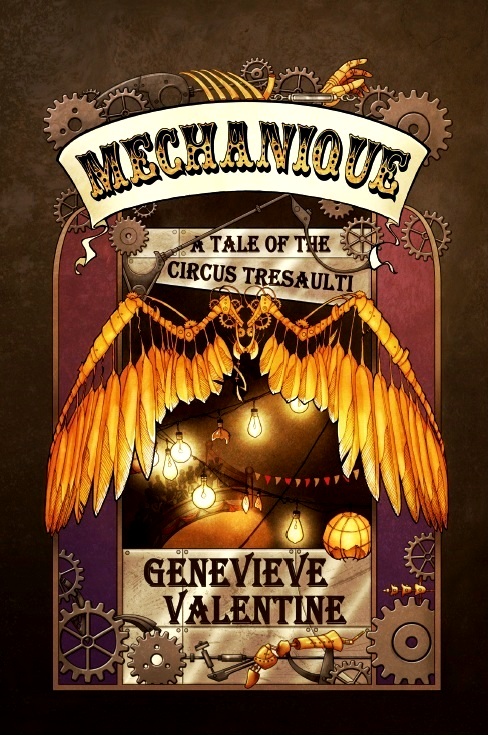
So I’ve been meaning to write this review for about 2 weeks now. As soon as I finished Mechanique I knew I wanted to write about it, but I haven’t had the time. I teach English as a Foreign Language at a university in South Korea and the end of semester always means two weeks of exhausting work. I mostly teach English Conversation so final exams mean I have to sit down and talk to students. It doesn’t sound so bad but going over the same questions and hearing the same sorts of answers (often with the same sorts of mistakes) over and over again for hours a day over the course of a week is surprisingly draining. There is also the fact that when you’re marking someone’s conversation skill and language ability you really have to give them your full and undivided attention. If you let your mind wander you risk being unfair in your marking. The week after exams is always long too as I usually have a backlog of final tests and homework assignments to mark before I can compile final grades. The payoff for those two weeks of mental exhaustion though are a generally easy job and two months of paid vacation per semester, so I’m not complaining.
This means I’m going to have lots of time for writing and blogging, assuming I don’t let the joy of freedom devolve into long hours of TV, computer games and naps. That’s always a danger. Anyway, expect to see more action here on Looking For a Rabbit Hole (still pondering a name change on that front…). To start us off I should get to that review, yes?
To be clear, I am reviewing the audiobook of Mechanique, which means I’m really reviewing the work of two different storytellers: the book’s author, Genevieve Valentine [ her blog here] [her twitter here], and the audiobook’s narrator, Scott Aiello [other books narrated by Scott here]. Both of these fine artists did a great job in making Mechanique an enjoyable audiobook experience. Early on in my listening I realized that, as someone aiming sqaurely at the goal becoming a proffessional writer, I was very jealous of the writing here. Mechanique is not your standard novel. The narrative is non-linear, effortlessly jumping back and forth through time, and uses multiple points of view; many of the Circus Tresaulti’s performers take their turn in the spotlight.
Continue reading →

